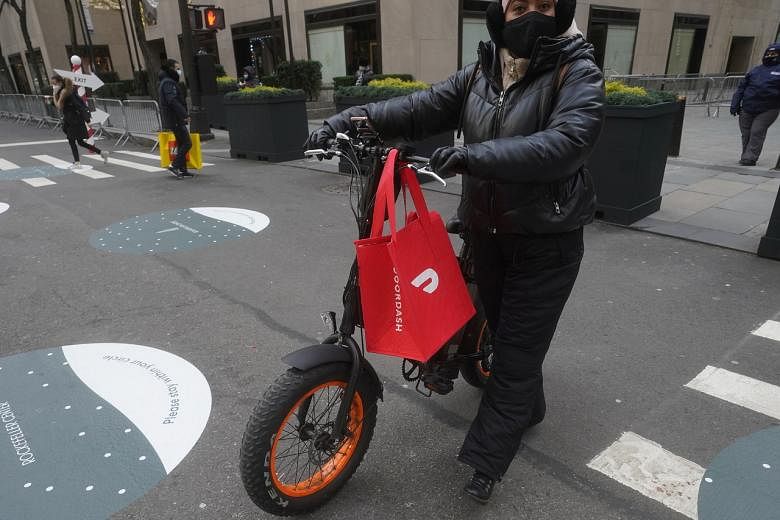(FINANCIAL TIMES) When shares in the US food delivery app DoorDash jumped by 86 per cent on their first day of trading last month, it did not take long for sceptics to start frothing about another tech bubble.
DoorDash has never generated annual net profits. It has warned investors that the losses will only continue as it prioritises growth. Analysts have questioned whether these "on-demand" e-commerce businesses can ever make money. Yet DoorDash is valued at around US$50 billion (S$66 billion); Uber's market capitalisation is now around US$100 billion.
Already a subscriber? Log in
Read the full story and more at $9.90/month
Get exclusive reports and insights with more than 500 subscriber-only articles every month
ST One Digital
$9.90/month
No contract
ST app access on 1 mobile device
Unlock these benefits
All subscriber-only content on ST app and straitstimes.com
Easy access any time via ST app on 1 mobile device
E-paper with 2-week archive so you won't miss out on content that matters to you

